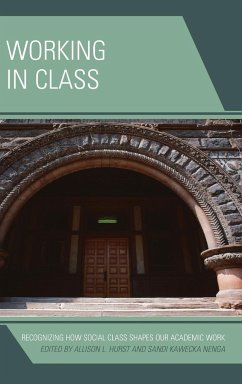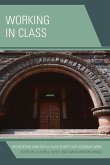More students today are financing college through debt, but the burdens of debt are not equally shared. The least privileged students are those most encumbered and the least able to repay. All of this has implications for those who work in academia, especially those who are themselves from less advantaged backgrounds. Warnock argues that it is difficult to reconcile the goals of facilitating upward mobility for students from similar backgrounds while being aware that the goals of many colleges and universities stand in contrast to the recruitment and support of these students. This, combined with the fact that campuses are increasingly reliant on adjunct labor, makes it difficult for the contemporary tenure-track or tenured working-class academic to reconcile his or her position in the academy.
Hinweis: Dieser Artikel kann nur an eine deutsche Lieferadresse ausgeliefert werden.
Hinweis: Dieser Artikel kann nur an eine deutsche Lieferadresse ausgeliefert werden.








